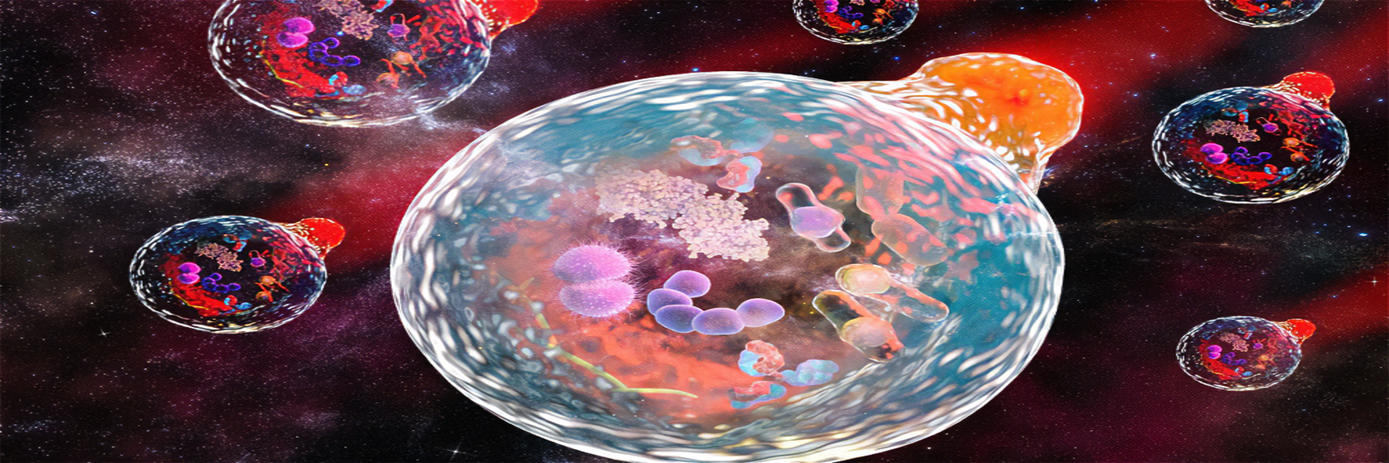Tuberculosis (TB) is a potentially lethal bacterial infection that spreads in the air from one person to another. In 2022, the World Health Organization (WHO) reported that the number of people infected with Mycobacterium tuberculosis (Mtb), including drug-resistant strains, had risen globally for the first time in almost 20 years. The disease killed over 1.6 million people and 10.6 million people fell ill with TB worldwide.
These figures were disappointing for many, especially since TB is a treatable disease.
The standard treatment typically requires six months of antibiotics. But depending on the drug susceptibility of the infecting strain, treatment sometimes lasts much longer. There is, therefore, an urgent need to uncover novel ways to treat TB without such a reliance on current antibiotic strategies.
Exploring the role of autophagy
Researchers at the Francis Crick Institute used a combination of CRISPR-Cas9 gene editing and high-content imaging approaches to explore the role of autophagy in controlling Mtb infection. Autophagy has recently emerged as an essential host immune defense mechanism against intracellular Mtb infection. Yet it has not previously been feasible to use gene deletion approaches to study the role of autophagy in primary human macrophages.
For their study, the team used CRISPR-Cas9 to knock out the ATG7 or ATG14 autophagy genes in human induced pluripotent stem cell-derived macrophages (iPSDMs). They then used the Opera Phenix™ high-content screening system to monitor replication of wild-type and mutant Mtb strains in the edited macrophages. The mutant strains were either unable to trigger canonical autophagy (Mtb ΔesxBA) or unable to block non-canonical autophagy (Mtb ΔcpsA).
Imaging analysis revealed that deletion of ATG7 resulted in increased replication of wild-type Mtb in iPSDMs, but not of Mtb ΔesxBA or Mtb ΔcpsA. Infection with wild-type Mtb also resulted in a higher number of dead cells, indicating that the infection was associated with macrophage cell death in ATG7 KO cells.
The deletion of ATG14, which only disrupts canonical autophagy and leaves non-canonical autophagy intact, led to more pronounced increased replication of wild-type Mtb and the mutant Mtb ΔesxBA. Using Mtb reporters and quantitative imaging the researchers confirmed that ATG14 regulates the fusion between Mtb-containing phagosomes and lysosomes in macrophages.
Writing in Nature Microbiology the authors said: “Our data revealed that ATG7 and ATG14 are required to control Mtb infection by macrophages and revealed that autophagy proteins regulate different stages: ATG7 and ATG14 regulate the control of cytosolic Mtb and ATG14 regulates the fusion of Mtb phagosomes with lysosomes.”
Final thoughts
Max Gutierrez, head of the Host-Pathogen Interactions in Tuberculosis Laboratory at the Crick, believes that studies such as this will provide key information to guide the development of novel therapies to treat TB, commenting: “As immunotherapies have harnessed the immune system to fight cancer, boosting this immune defence with a host-directed therapy could be a valuable new tool in the fight against infections, particularly those becoming resistant to antibiotics.”
Reference:
- Aylan, B., Bernard, E.M., Pellegrino, E. et al. ATG7 and ATG14 restrict cytosolic and phagosomal Mycobacterium tuberculosis replication in human macrophages. Nat Microbiol (2023). https://doi.org/10.1038/s41564-023-01335-9


































